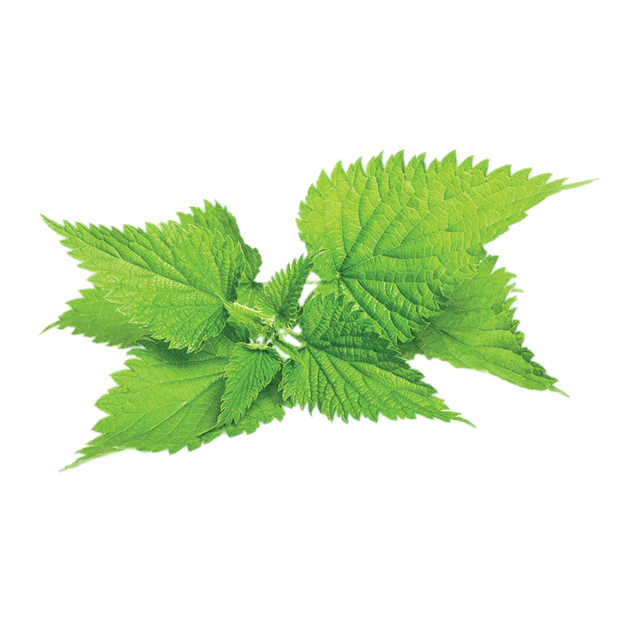Nettle
Urtica dioica L. – Urticaceae

Nettle is a herbaceous, perennial plant that belongs to the Urticaceae family. The tree is upright and square, the leaves are on petioles, opposite, ovate-lanceolate. Stems and leaves are covered with hairs. The flowers are greenish, collected in inflorescences, and the fruit is a nut. The cosmopolitan species grows around houses, along roads, in habitats rich in nitrites. It is inhabited in many South Asian countries, on the Indian subcontinent and has long been used as a medicinal plant in traditional medicine.
Medicinal parts of the plant are seeds, leaves and roots. In our preparation, we used an extract of a mixture of nettle leaves and roots. Nettle is used as an aid in the treatment of various diseases, such as nephritis, hematuria, icterus (jaundice), arthritis and rheumatism. Nettle leaf contains organic acids (formic and oxalic), free amines (acetylcholine, betaine, choline, histamine, serotonin), flavonoids, carotenoids, tannins and coumarins, while nettle root contains polysaccharides, lectins, coumarins and triterpenes. Also, nettle is rich in iron and vitamin C.

Due to the large number of biologically active compounds, nettle has various pharmacological activities, such as antibacterial, antioxidant, analgesic, anti-inflammatory, antiviral, immunomodulatory, hepatoprotective, anticancer, antiallergic activities. Nettle leaf and root extracts have been the subject of many studies, so its pharmacological activities have been known for a long time. Through studies, it has been proven that nettle is traditionally used in the control of cardiovascular diseases, especially hypertension. It has also been proven that nettle leaf extract has a beneficial effect on blood glucose levels, as well as being used as an anti-inflammatory drug in the treatment of rheumatoid arthritis. One very important fact is that the extract of this plant showed a significant effect in the treatment of breast cancer, especially in patients who were on paclitaxel therapy, because nettle increased the sensitivity of cancer cells to the drug paclitaxel. Nettle can be recommended for increased menstrual bleeding, for bleeding from hemorrhoids, as a diuretic (it enhances the expulsion of fluid from the body, so it can also be recommended for urinary infections of different types), and it has also been used as an aid in the treatment of benign or malignant prostate adenoma .
References
- Urtica Dioica Root Extract on Clinical and Biochemical Parameters in Patients with Benign Prostatic Hyperplasia, Randomized Controlled Trial
- PHARMACOGNOSTICAL REVIEW OF URTICA DIOICA L.
- Screening of pharmacological uses of Urtica dioica and others benefits
- Pharmacognostic Evaluation and Antioxidant Activity of Urtica dioica L.
